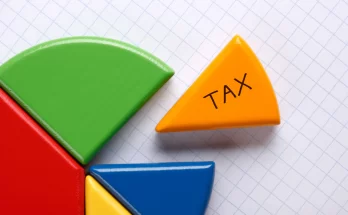The International Monetary Fund (IMF) has pointed out that Morocco is not achieving its full potential tax-wise. It revealed that the country is liable to generate a higher percentage of tax income if it makes certain adjustments.
In a recent report by the International Monetary Fund, IMF Morocca tax is generating 12% less than what it should be making. The international body says the North Africa’s country is relatively low considering its economic structures.
It revealed that tax revenues account for 21.6% of GDP, whereas its potential can reach 33.8%, especially at the rate economic growth and social inclusion are projected to increase by the end of this year.
The IMF further revealed that Morocco has achieved significant economic gains, as the North African country’s revenue base has grown significantly over the past year.
As a result of this progress, the IMF anticipates that adjustments to the tax system, such as the increase in the personal income tax, value-added tax, and property taxes, will enable further collection.
It also noted that establishing multiple sources of income might boost the economy and in turn provide more avenues for tax collection.
Making efficient adjustments to the tax administrations in Morocco, such as efforts to fight corruption, solidify governance, and enable transparency would also result in better enforcement.
The banking institution forecast similar figures in many Middle Eastern and North African nations and this has successfully widened their tax bases.
Rising Inflation and Growth Issues in Morocco Tax
Still dwelling n predictions surrounding the Morrocan economy, it is worthy of note that in June the Central Bank of Morocco confirmed a slow economic growth alongside a rising inflation rate that will eventually increase fuel prices.
The apex bank in the country predicted that inflation should reach 5.3% in 2022. This is more like fourfolds of 2021’s 1.4% inflation rate. In addition to the aftermath of the fuel price increase, the central bank envisages hunger in the land.
Explaining the cause of its prediction, the central bank highlighted the rise the food and the high cost of procuring energy particularly, hydrocarbons due to the Russian-Ukraine unrest as major drivers of the downturn predicted.
The poor harvest experienced in the North African region due to a lack of adequate rainfall is also a major reason for the prediction by the apex bank as Agriculture with a 14% GDP contribution represents a major cash cow for the Moroccan economy.
Efforts of the Moroccan Government
In addressing these economic challenges, the Moroccan government has turned to subsidise with 32 billion dirhams major food staples like butane gas, flour and sugar.
Also, the transportation sector recently received reimbursement of 1.4 billion dirhams to help road transporters following a nationwide strike by the sector.



